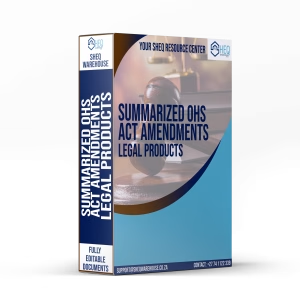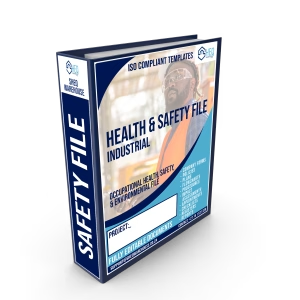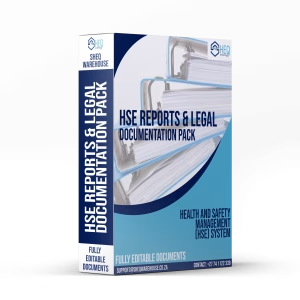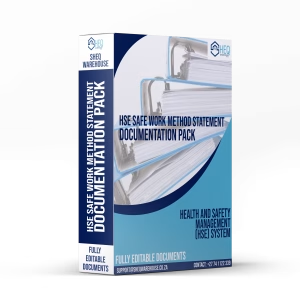Training Material – ISO 19011 Auditors Training
R3850,00
Elevate your ISO training with our expertly designed ISO 19011 Auditors training material, crafted specifically for the South African industry. This comprehensive package aligns with the ISO International Standards, as well as local legislation, thereby promoting a culture of compliance.
Included in the package:
✔ ISO 19011 Standard – Guidance to Auditing PowerPoint Presentation.pptx
✔ ISO 19011 Assessment.docx
✔ ISO 19011 Facilitators Guide.docx
✔ ISO 19011 Trainee’s Workbook.docx
We offer:
✔ Comprehensive, ready-to-use materials to train and empower your, or your customers workforce.
✔ Fully compliant with the International Standards Organization and local legislation.
✔ Designed by experts with years of industry auditing experience.
✔ Exceptional value for money.
Transform your operations with this essential training material. Save time, ensure ISO & legal compliance, and foster a compliance culture for your, or your customers team. Perfect for training providers, ISO professionals and consultants. This is your ultimate solution for delivering effective compliance training.
Description
PRODUCT TABLE OF CONTENT_5
SECTION 1. AUDITING PRINCIPLES AND THEORY
1. AN AUDIT CAN BE CONDUCTED AGAINST A RANGE OF AUDIT CRITERIA:
2. WHICH TYPE OF COMPANY CAN BE AUDITED:
3. TYPES OF AUDITS
4. AUDIT METHODS
5. THE FEASIBILITY OF A REMOTE AUDIT/DESKTOP AUDIT:
6. THE AUDITING TEAM:
7. PROCESS APPROACH TO AUDITING
8. PROFESSIONAL JUDGEMENT
9. PERFORMANCE RESULTS
10. VERIFYING INFORMATION
11. SAMPLING
12. AUDITING COMPLIANCE WITHIN A MANAGEMENT SYSTEM
13. AUDITING CONTEXT
14. AUDITING LEADERSHIP AND COMMITMENT
15. AUDITING RISKS AND OPPORTUNITIES
16. LIFE CYCLE
17. AUDIT OF SUPPLY CHAIN
18. PREPARING AUDIT WORK DOCUMENTS
19. SELECTING SOURCES OF INFORMATION
20. VISITING THE AUDITEE’S LOCATION
21. AUDITING VIRTUAL ACTIVITIES AND LOCATIONS
22. CONDUCTING INTERVIEWS
23. AUDIT FINDINGS
SECTION 2. ISO 19011 STANDARD
1. SCOPE
2. NORMATIVE REFERENCES
3. TERMS AND DEFINITIONS
4. PRINCIPLES OF AUDITING
5. MANAGING AN AUDIT PROGRAM
5.1 General – Establishing an Audit Program.
5.2 Establishing audit program objectives.
5.3 Determining and evaluating audit program risks and opportunities.
5.4 Establishing the audit program.
5.5 Implementing audit program.
5.6 Monitoring audit program
5.7 Reviewing and improving audit program.
6. CONDUCTING AN AUDIT
6.1 General
6.2 Initiating audit
6.3 Preparing audit activities.
6.4 Conducting audit activities.
6.5 Preparing and distributing audit report.
6.6 Completing audit, when,
6.7 Conducting audit follow-up.
7. COMPETENCE AND EVALUATION OF AUDITORS
7.1 General
7.2 Determining auditor competence.
7.3 Establishing auditor evaluation criteria.
7.4 Selecting appropriate auditor evaluation method.
7.5 Conducting auditor evaluation.
7.6 Maintaining and improving auditor competence.



